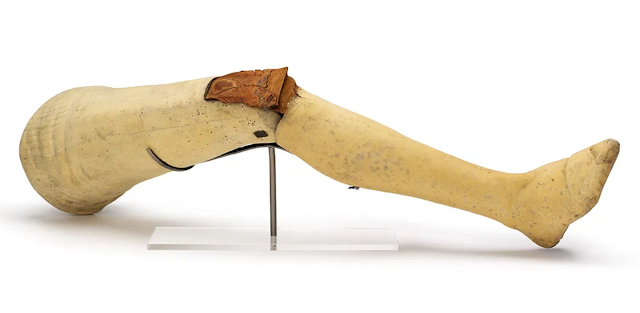ROMA HISTORY AND CULTURE: ‘Gibberish’ was a racial slur.
We are at tipping
point in a years-long struggle against racism.
Protests have sprung up all over the world, stemming from events in the
USA. This post is not intended to provide
commentary on these events – there are many people far better placed to provide
such comment – but rather to highlight something which I think is not
completely understood regarding the etymology of a particular word, which can
in context be considered a racial slur. It
has been in my mind to write this post for some time – stemming from
conversations at the IMC in Leeds in 2019.
I decided to finish it off due to a recent conversation with a student
with a similar background to me which revolved around the misunderstanding and
misrepresentation of minority cultures.
Gibberish. It’s a term that’s often thrown around in
discussion and criticism. A critic may condemn
a writer’s prose style as ‘bordering on gibberish’. A politician may call their opponent’s
manifesto or policies ‘unintelligible gibberish’. Even in the most neutral of contexts the term
is generally negative – while the term ‘nonsense’, while also a negative, is
sometimes held up as an art form as practised by Edward Lear. Few people realise however that if either of
the two most likely etymologies is correct, the term can in fact be considered
to be a racial slur.
 |
| The interior of a Reading 'vardo' - a traditional Romani caravan. These particular homes retain their traditional decoration and style. |
First, if we
look at the spelling of the term – ‘gibberish’ – it is more
commonly spelt with a ‘G’, however scanning backwards through English
literature over time it can be seen spelt with a ‘J’, which gives a clue to the
first possible etymology. ‘Jib’ is an
Angloromani dialect word meaning ‘speech’ or ‘language’ – and generally used to
refer to the Angloromani dialect itself.
To a non-speaker Angloromani can be particularly frustrating since it
contains a vast lexicon of loanwords from English – but it is mixed heavily
with words of Roma origin and its many variant dialects. People may be familiar with Polari which also
contains some elements of Romani, which was used by various groups linked with
circus and fairground shows – which have strong connections with the Romani
community – including professional wrestlers (a performance art in itself with
its origin in fairground wrestling) and by extension by actors and then by the
LGBT community. Polari stems away from
Anglo-Romani and contains elements from multiple sources. Some terms from Polari re-entered general
English usage but Angloromani has remained distinct with a few notable
exceptions. Because Angloromani contained English
loanwords this led to the use of ‘gibberish’, with the meaning ‘sounding like jib’, which came to have negative associations and became synonymous with unintelligible speech. The term therefore, with this etymology, can
be considered to be either racially charged, or simply a racial slur in itself.
 |
| The alchemist Jabir ibn Hayyan, from a 15th century European portrait of Geber, Codici Ashburnhamiani 1166 |
Secondly,
another suggested etymology is Latinisation of the name of Abū Mūsā Jābir ibn
Hayyān - a Persian or Arabian alchemist
to whom a vast number of works are attributed but whose very existence is
dispute. His name was Latinised as Geber
– which may have given rise to the term ‘gibberish’ as an epithet for the complex, technical, and often coded language
of Alchemical texts – a trait common to both Arabic and Latin manuscripts. Given the disputed attributions of the corpus
of works in question, and the doubts of some modern scholars, this is perhaps
less likely – however it is in effect calling work written in Arabic, by a
figure of Arabian or Persian origin, unintelligible. While this may have been a simple comment of
the fact that the texts were difficult to understand, the fact it acquired negative
connotations in more general usage suggest there may have bene a degree of racist
comment behind it.
A third
etymology which is sometimes used is that the ‘gib’ in ‘gibberish’ originates in ‘gob’ or ‘gab’ and in Irish Gaelic – however this etymology is considered highly
unlikely by a number of linguists and has been more heavily disputed.
Therefore, it
is worth considering, that while over time the term has lost its racist
overtones this is due, perhaps, to the general lack of knowledge around
Angloromani, and the many dialects of the Roma languages, in part due to the
lack of interaction between Roma communities and other populations - which is itself largely the result of
persecution of Roma populations. While the
term may not be considered a racial slur now by either Roma, and GRT
communities, or by people of Arabic origin, the origins of the term are in fact
racist. Racism against the GRT community
has been called ‘the last acceptable form of racism’. It is worth noting that since the beginning
of Covid-19 pandemic there has been a rise on attacks on the GRT community, particularly
in Eastern Europe, who have been scapegoated for the spread of the disease, including
arbitrary arrests, and there have been allegations of torture. (Similar attacks have taken place during past
pandemics, as I discussed in this entry on another blog)
There is hope
that at this time of protest against institutionalised racism there maybe a
change in attitudes towards GRT communities too.


